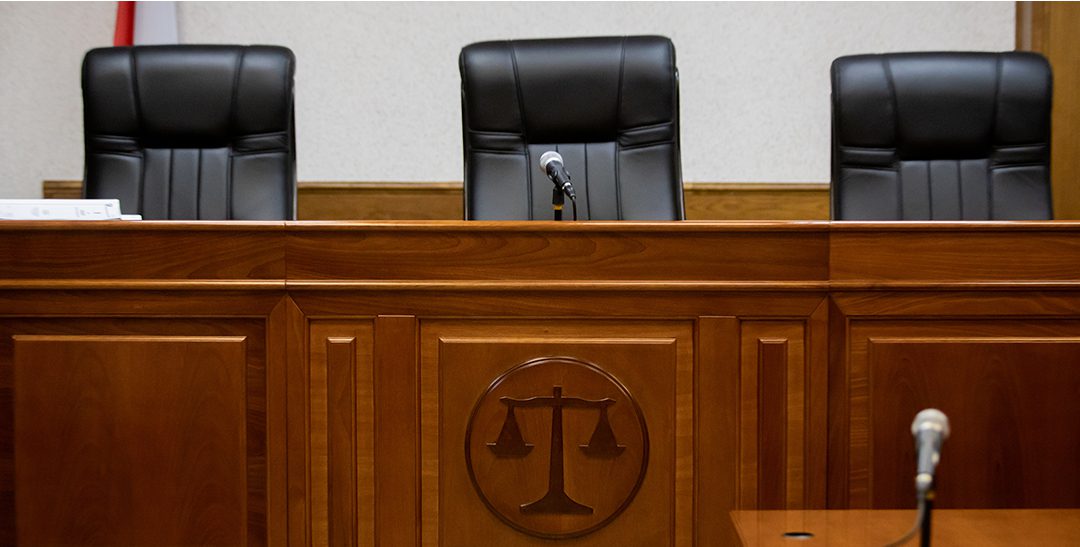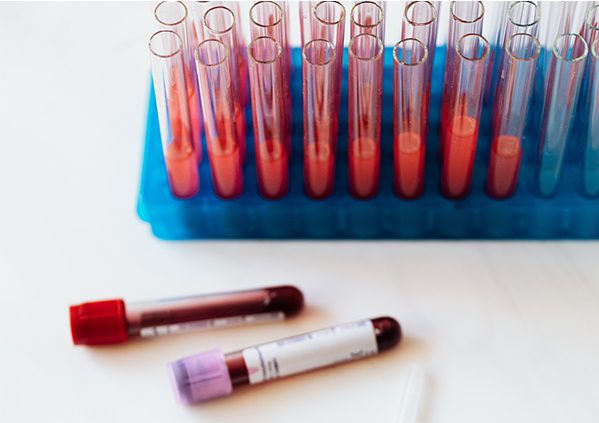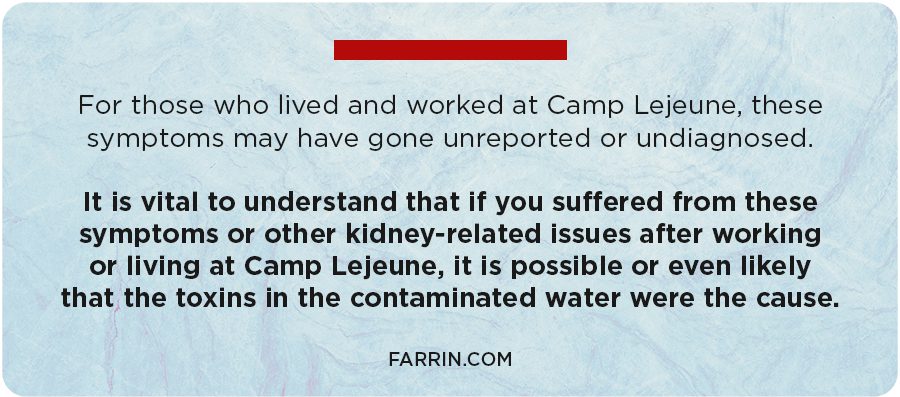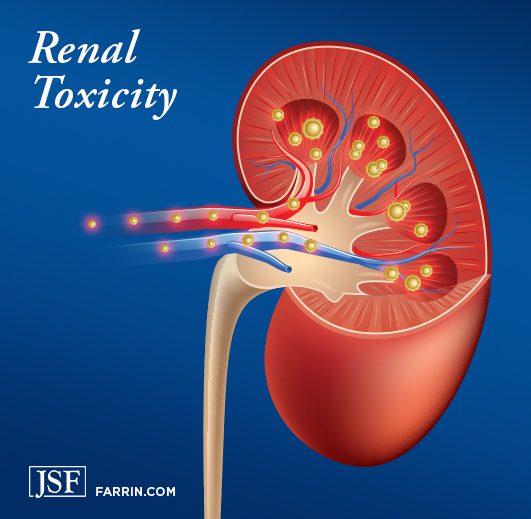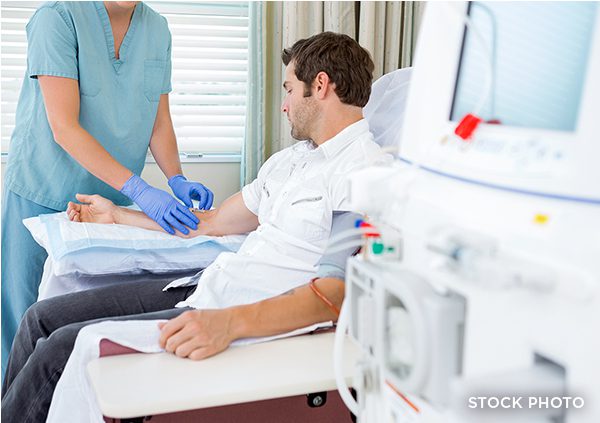Renal Toxicity, Camp Lejeune, and the Fight for Justice
The contaminated water at Marine base Camp Lejeune caused many illnesses and diseases. In particular, kidney cancer and other kidney diseases have been widely reported by those who spent some time at Camp Lejeune. The VA also generally provides benefits to those who suffered renal toxicity from the water.
It may not be surprising that the body’s detox organs took the brunt of the damage for those exposed to the toxic substances in the drinking water, possibly resulting in renal toxicity – a condition that signals kidney damage and can be a precursor to even more serious diseases. If you or a loved one spent 30 days at Camp Lejeune between 1953 and 1987, even non-consecutively, and suffered from renal toxicity, you may be entitled to compensation.
What Can Camp Lejeune Veterans, Families, and Workers Do?
Contaminated drinking water at Camp Lejeune may have affected hundreds of thousands of people. Service members, family members, and civilian employees who suffered from renal toxicity or one of the other health conditions identified as resulting from Camp Lejeune water contamination should file a claim.
The first step is to file a claim for compensation with the government. An experienced attorney can help you with that. If you are denied compensation or receive an offer that is too low, you can fight for more compensation. Your attorney can help you with that, too.
Give our team a call at 1-866-900-7078 and we’ll review your claim for you. This is absolutely free. Even if you:
- Were exposed to other contaminants (such as tobacco) before or after Camp Lejeune
- Don’t have a “presumptive condition”
- Already received VA benefits
- Don’t know exactly when or if you or a loved one were at Camp Lejeune
- Don’t have proof in hand
Give us a call. You can still seek compensation for yourself or a loved one. Our experienced attorneys will consider the following types of factors when calculating potential damages for your harms caused by contaminated water at Camp Lejeune:
- Medical expenses incurred (including tests, diagnostic scans, drugs, and treatments)
- Medical treatment needed (including things like dialysis, which may be required indefinitely)
- Possible disability benefits
- Lost wages
- Pain and suffering
- Emotional trauma
- Loss of society and companionship
- Loss of financial support due to the death of a family member
Time is limited to bring your claim, so don’t delay.
What Is Renal Toxicity and What Does It Do?
The word “renal” simply means “relating to the kidneys.” Renal toxicity, also called nephrotoxicity, is a common problem that occurs when the body is exposed to a toxin that damages the kidneys and impairs their function.
The kidneys perform multiple vital roles in the body, including:
- filtering waste out of the blood
- removing waste (in the form of urine)
- regulating blood pressure
- creating red blood cells
- regulating electrolytes
When nephrotoxicity occurs, kidney function is reduced, and some or all of those activities become compromised. Toxicity also means an increased risk of more serious problems, like cancers and other diseases of the kidneys or outright failure.
What Are Some Indicators of Renal Toxicity?
Some who suffer renal toxicity may not realize exactly what’s happening. Mild nephrotoxicity may be difficult to detect because decreased kidney function does not always have outwardly obvious signs or symptoms. Only when damage increases do symptoms appear. They may include:
- decreased urination
- swelling due to fluid retention
- high blood pressure
- problems with the liver or skin
Some kidney diseases have been acknowledged as presumptive conditions caused by Camp Lejeune’s water. Presumptive conditions are health conditions that the VA has classified as likely to result from the contaminated water at Camp Lejeune. The VA will generally provide health benefits without requiring medical records or proof of a service connection with the condition.
Other kidney diseases not specifically listed as presumptive conditions could still have resulted from toxic exposure suffered due to the Camp Lejeune water supply. If you or a loved one developed kidney cancer or suffered from end-stage renal disease or another acute renal injury after spending time at Camp Lejeune, give us a call. We want to help.
Does Renal Toxicity Cause Kidney Cancer, and Could Camp Lejeune Water Contamination Have Contributed?
No, renal toxicity itself isn’t the cause of kidney cancer – but it is considered a possible warning sign, symptom, or both. The symptoms – elevated electrolyte levels in the blood, for example – are easily spotted with abnormal renal function tests and can be used to spot kidney problems before physical ailments begin to occur.
Kidney cancer is a mutation of the cells of the kidney. Camp Lejeune water contamination could be responsible for the toxicity and can certainly be the culprit in kidney cancer as well. According to the Agency for Toxic Substances and Disease Registry (ATSDR), two of the most common pollutants in the contaminated drinking water at Camp Lejeune, TCE and PCE, are linked to renal toxicity, with one strongly linked to kidney cancer.
- Evidence from animal studies indicates that trichloroethylene (TCE) causes renal toxicity, and there is also evidence that TCE metabolites cause kidney toxicity.
- TCE is characterized as carcinogenic to humans based on convincing evidence of a causal association between TCE exposure in humans and kidney cancer.
- Evidence from animal studies indicates that perchloroethylene (PCE) causes renal toxicity in the form of mild to acute tubular toxicity.
Is Renal Toxicity a Chronic Kidney Disease?
Not necessarily. Chronic kidney disease occurs when a disease or condition causes the kidneys to function poorly and continues to damage them over the course of months or years. With many types of contamination by toxic chemicals, reducing exposure and other treatments can return the body to normal. Even in cases of acute kidney failure, if the cause is mitigated, the kidneys can often resume normal function.
Renal toxicity, then, could be a temporary condition depending on the exposure duration, degree of exposure, toxic chemicals involved, treatment, and damage done to the individual’s kidneys. The longer someone is exposed to a toxin, the more likely that more serious damage can occur, and the condition may become permanent.
If exposure is severe enough, or an individual’s body reacts strongly enough, renal toxicity can lead to sudden acute kidney failure (also called acute renal failure), drawing a direct line from renal toxicity to a life-threatening condition. By contrast, the toxin may act slowly over time. In those cases, renal toxicity may lead to chronic kidney disease.
We Fight for Camp Lejeune Veterans, Family Members, and Civilian Workers
The Camp Lejeune Justice Act gives those who suffered adverse health effects from the contaminated drinking water a chance for justice. Even service members who have received VA benefits are eligible and encouraged to file a claim.
We have experience and resources to help you (and you won’t owe any attorney’s fee if we don’t recover for you2). We’ve won big against the government before – we secured a $1.25 billion settlement on behalf of 15,700+ farmers who were discriminated against by the USDA.3 We’re currently fighting for veterans against 3M for faulty earplugs in one of the largest multi-district litigations in U.S. history.
We are already fighting for hundreds of Camp Lejeune victims. And we can help you, too, by guiding you through the process, ensuring you meet deadlines, and taking your case to court if that’s what’s right for you. Claims must be filed in the Eastern District of North Carolina, which is our home and the location for many of our offices.
If you – or a loved one who has passed – suffered from kidney-related illnesses, including kidney cancer or chronic kidney disease, contact us online or call us immediately at 1-866-900-7078 for a free case evaluation. By law, Camp Lejeune victims have a limited time window to file a claim.
 FAQs
FAQs
What can cause renal toxicity?
The kidneys are important filters for the blood, and many toxins have an adverse effect on them. The TCE and PCE in the water at Camp Lejeune are directly linked to renal toxicity and other acute renal effects.
What are the signs of nephrotoxicity?
It may be difficult to detect nephrotoxicity as reduced kidney function may not offer any obvious symptoms. Reduced urination, swelling, and high blood pressure may occur as toxicity and damage increase.
Can renal toxicity side effects be managed?
Managing nephrotoxicity is possible. Reducing or eliminating exposure to the toxin helps but may not eliminate the condition if damage has occurred. Nephrotoxicity can be the first step toward more serious conditions such as kidney cancer, acute kidney disease, and renal failure.


